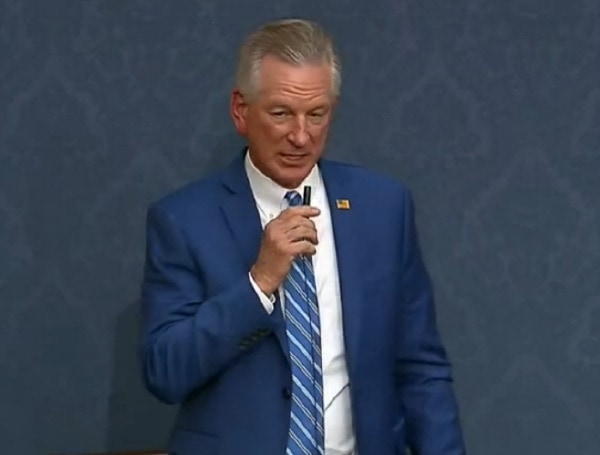U.S. Senator Tommy Tuberville (R-AL) announced Tuesday he has joined U.S. Senator Chuck Grassley (R-IA) in cosponsoring the Immigration Parole Reform Act, legislation aimed at significantly restricting the executive branch’s authority to grant immigration parole.
Senator Tuberville previously cosponsored similar legislation in the 118th Congress. The bill seeks to codify stricter limitations on who can be paroled into the United States and for how long.
Both senators sharply criticized the use of parole by previous administrations, particularly the Obama and Biden administrations, arguing it has been misused to allow large numbers of migrants into the country outside of traditional immigration pathways.
READ :Biden Blasts Trump’s Ukraine Stance As ‘Modern-Day Appeasement’ In First Post-White House Interview
“The Biden administration made a habit of using dangerous loopholes to let more illegal immigrants into the country,” said Sen. Tuberville. “Giving parole to hundreds of thousands of illegal immigrants is an abuse of power—President Trump is putting an end to this. I am proud to join this legislation that clarifies executive parole authority and will prevent future administrations from enabling an endless flow of dangerous criminals into our country.”
“The Obama and Biden administrations badly abused immigration parole, which was intended to be a temporary and highly discretionary means to enter our country. Under President Trump, parole will no longer be used as a loophole for illegal immigration,” said Senator Grassley. “However, Congress must also act to prevent any future exploitation. My legislation would clarify the parole statute and ensure all future administrations are bound to Congress’ original intent.”
READ: Florida Sen. Scott, Massachusetts Sen. Warren Introduce Bill For Independent Fed, CFPB Watchdog
Immigration parole, established by Congress in 1952, permits the executive branch to temporarily allow individuals into the U.S. on a limited, case-by-case basis for urgent humanitarian reasons or significant public benefit.
Proponents of the bill argue this authority was exploited by previous administrations to bypass standard immigration procedures and admit entire categories of people, claiming the previous administration (implicitly the Biden administration, based on the context and cited number) indiscriminately released an estimated 1.5 million immigrants into the U.S.
While acknowledging the Trump administration’s directive issued on January 21, 2025, which they say aims to restore the parole program to its original intent, Senators Grassley and Tuberville believe legislative action is necessary to permanently prevent what they view as abuses of the system.
READ: Former Clinton Pollster: Dems ‘Problem’ Is ‘They’re Seen As Purely Partisan’ And ‘Off The Deep End’
The Immigration Parole Reform Act proposes several key changes:
- Ensuring parole is granted strictly on a case-by-case basis, prohibiting its use for entire classes of people.
- Providing clear definitions for what constitutes an “urgent humanitarian reason” or “significant public benefit.”
- Guaranteeing that parole cannot be used as a means to adjust to permanent resident status or obtain other immigration benefits, with limited exceptions.
- Placing limits on the initial duration of parole grants (generally one year or less, sufficient to accomplish the specific purpose) and allowing only one extension, with an exception for those with pending adjustment of status applications.
In addition to Senators Tuberville and Grassley, the bill is cosponsored by Senators Katie Britt (R-AL), Ted Budd (R-NC), Bill Cassidy (R-LA), Tom Cotton (R-AR), Joni Ernst (R-IA), Josh Hawley (R-MO), James Lankford (R-OK), Mike Lee (R-UT), Bernie Moreno (R-OH), and Tim Sheehy (R-MT).
Please make a small donation to the Tampa Free Press to help sustain independent journalism. Your contribution enables us to continue delivering high-quality, local, and national news coverage.
Connect with us: Follow the Tampa Free Press on Facebook and Twitter for breaking news and updates.
Sign up: Subscribe to our free newsletter for a curated selection of top stories delivered straight to your inbox.
